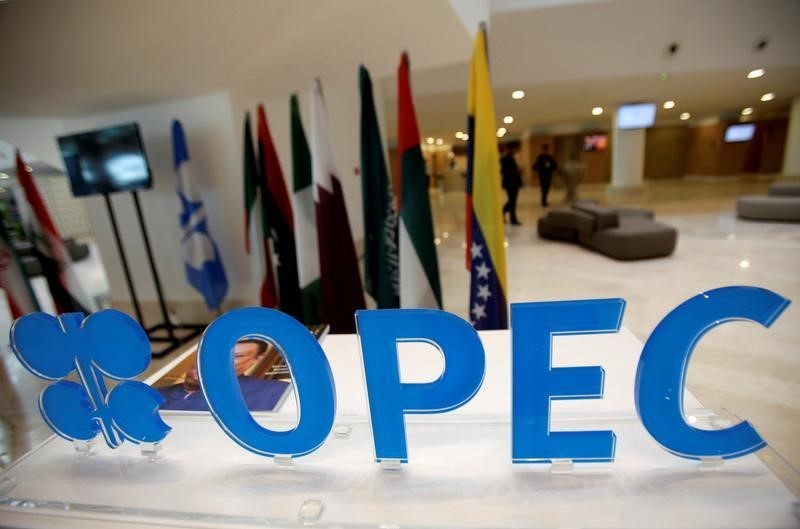(Bloomberg) -- OPEC appeared to score a diplomatic coup last week by persuading Libya, its most troubled member, to accept production limits. In reality, the agreement probably means little for the oil market.
The Organization of Petroleum Exporting Countries and its partners agreed on Nov. 30 to persevere with supply curbs until the end of next year, in a bid to drain oversupplied world markets. In a surprise addition, an output cap was imposed on members Libya and Nigeria, which had previously been spared any obligations while they struggled to recover barrels lost to armed conflict and sabotage.
The pact seemed to be a reversal for Libya, whose top oil official, Mustafa Sanalla, had outlined the country’s aspirations to revive exports and its need for leniency while nation rebuilding took place.
Yet in practice, the production cap of about 1 million barrels a day imposes little constraint on Tripoli, which is barely able to push output any higher, consultants Eurasia Group and Wood Mackenzie say. Libya plans to abide by the target next year, according to a person familiar with the matter who asked not to be named because the information isn’t public.
“The OPEC quota doesn’t matter,” said Riccardo Fabiani, an analyst at Eurasia Group. “Moving beyond 1 million barrels a day in 2018 is going to be very difficult anyway.”
With a fragile political accord barely holding the country together, Libya faces an array of challenges preventing its return to the output levels of about 1.6 million barrels a day pumped before the 2011 uprising against Muammar Qaddafi.
Potential Threats
Pipelines and other facilities are targeted by armed factions and tribal groups jostling for political control and a share of oil revenues.
“It would be an achievement in itself if Libya was able to maintain current rates of production,” said Martijn Murphy, research manager for North African upstream at Wood Mackenzie. “There’s still no central unity government, and so the potential for violence to flare is acute, and the threat of militias and tribes shutting down oil pipelines, valves or ports is ongoing.”
One of the biggest constraints for Libya is financial as National Oil Corp. struggles to pay suppliers and engineers and conduct necessary maintenance, Fabiani said. NOC chairman Sanalla said in London in October that the company was receiving only 25 percent of its stipulated investment budget.
Russia, which set aside decades of rivalry with OPEC to join the production deal, had pressed the organization to impose caps on Libya and Nigeria. While the two countries were exempt from the accord hammered out last winter, the recovery in their output this year undermined the efforts of fellow producers to eliminate a global oil glut.
Output Pledge
Details on the terms were scarce even as OPEC’s meeting concluded in Vienna, with no reference to the cap made in the cartel’s closing statement or a notice issued afterward by Libya’s NOC. There is a confidential document that commits Nigeria and Libya to limit their production to the highest level reached this year, without citing any figures, according to a person familiar with the matter who asked not to be named because that pledge will be kept private.
Libya and Nigeria are to restrict their combined production to no more than 2.8 million barrels a day, Iranian Oil Minister Bijan Namdar Zanganeh said after last week’s meeting in Vienna.
Despite the challenges the country faces, Libya might be able to pump slightly more next year, Wood Mackenzie’s Murphy said. Still, that would require rehabilitation of its main export terminals, Es Sider and Ras Lanuf, and the development of oil fields in the west and south of the country, he said.
Both Wood Mackenzie and Eurasia said they expect that, if Libya can increase production next year, it will do so, regardless of the agreement with OPEC. Other members of the organization, particularly Iraq and the United Arab Emirates, have flouted the production limits they submitted to.
Libya “can cheat and exceed the quota and nobody will say anything,” said Eurasia’s Fabiani. “It’s basically a nominal, or a paper, target that really doesn’t mean much to OPEC.”
